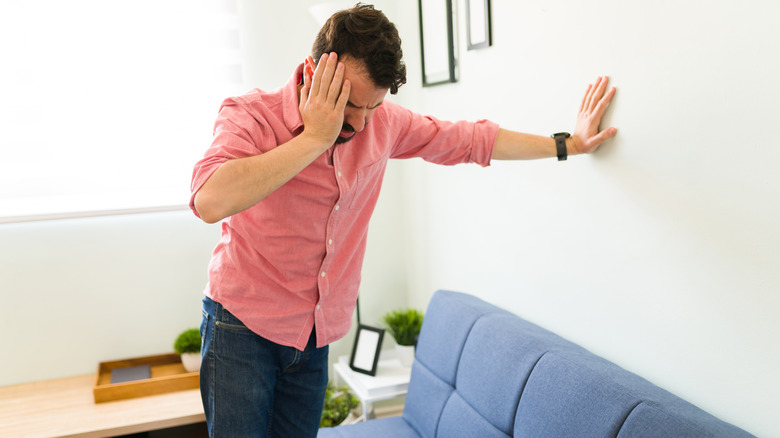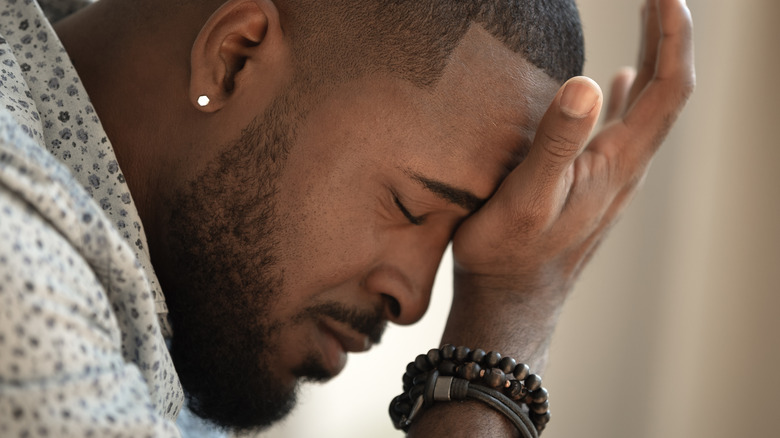The Link Between Anxiety And Dizziness
Most people have felt anxious at some point, an experience that can come with an array of symptoms. But beyond occasional feelings of anxiousness, over 40 million adults in the United States experience anxiety disorders, according to Healthline. Chronic anxiety comes with long-term symptoms, while acute anxiety is the anxious state many people experience before presentations at work or other singular situations. Both acute anxiety and chronic anxiety can include dizziness.
The American Psychiatric Association defines anxiety as a normal reaction within the human experience, which can — at times — serve as a helpful reaction to stress. On a primitive level, anxiety is our body's way of alerting us to danger, making us aware of our surroundings so that we can survive threatening situations. Beyond the purpose of anxiety as a survival tactic, though, anxiety disorders can become maladaptive. They might include experiences of chronic nervousness, fear, and excessive feelings of anxiousness in everyday life.
Anxiety disorders include phobias, panic disorders, and generalized anxiety disorder. It is estimated that approximately 30% of adults will have some type of anxiety disorder, which makes anxiety disorders the most commonly diagnosed mental health condition. Women experience anxiety disorders at a higher rate than men. Symptoms of anxiety are vast and vary from person to person, but often include difficulty sleeping, feeling panic or fear, heart palpitations, nausea, rumination, and dizziness (per WebMD). The bright side is that anxiety disorders are generally treatable — and that those treatments can be highly effective.
Anxiety can provoke dizziness
Dizziness is an umbrella term used to describe sensations of feeling unable to remain balanced (via Mayo Clinic). Dizziness encompasses feelings of being woozy, weak, unsteady, faint, and a sensation of your surroundings spinning around you. There are many culprits of dizziness, one of which is anxiety. According to Healthline, there are multiple ways in which anxiety can lead to dizziness. These range from rapid changes in blood pressure which leave someone feeling lightheaded, to inner ear conditions that can create a cyclical relationship between anxiety and vertigo. A person may feel anxious about an impending vertigo experience. The inner ear, which is influential in the body's ability to balance, can be impacted by stress hormones, like adrenaline, histamines, and cortisol. This results in a temporary inability to modulate balance and leads to dizziness.
This cycle of being anxious about frequent dizziness and the experience of dizziness can become extremely stressful. For that reason, it's important to seek out appropriate treatment. Treatment for anxiety might include counseling, medication, physical therapy, or lifestyle changes (per Healthline).
There are many lifestyle habits that can be incorporated to decrease anxiety — and, in turn, decrease anxiety-induced dizziness. Mindfulness and meditation can calm the body, eating a well-rounded and nutritious diet can keep your body at its best, and regularly exercising can increase endorphins and decrease stress hormones (via Better Health Channel).


